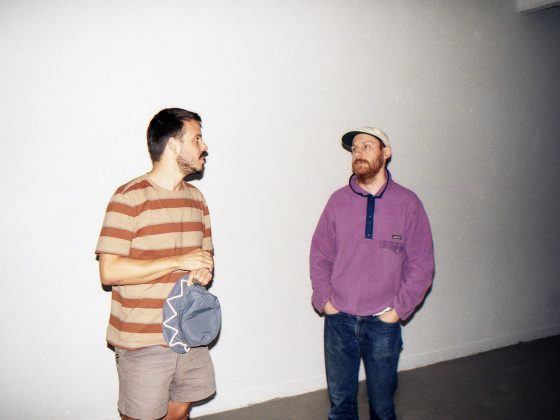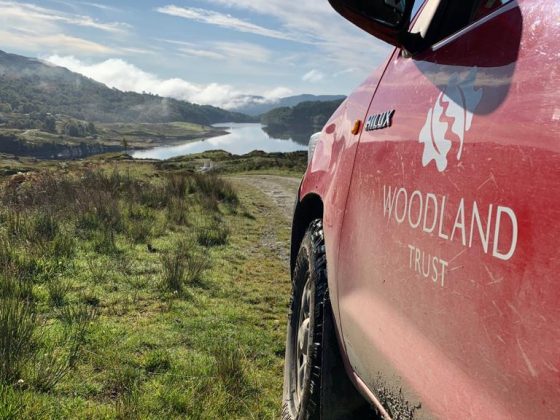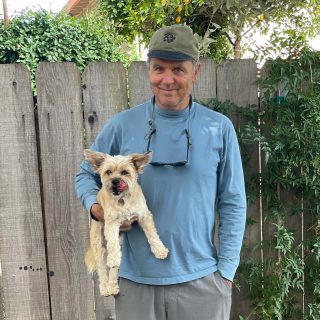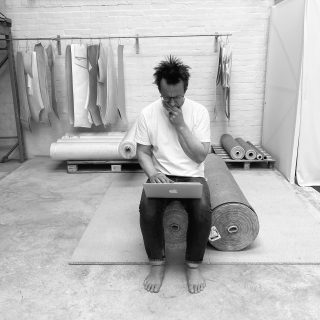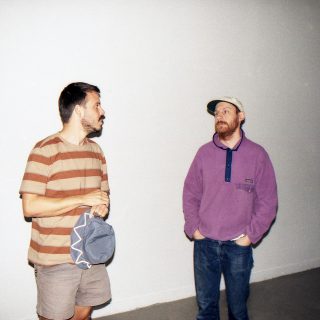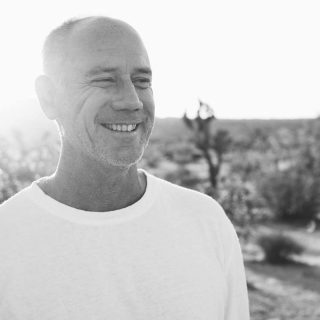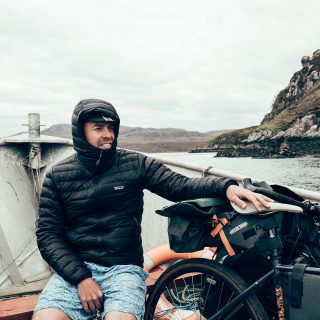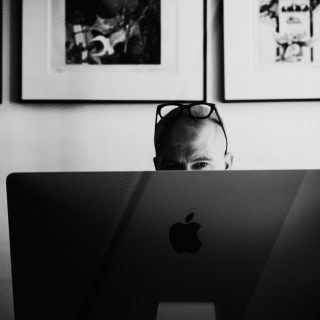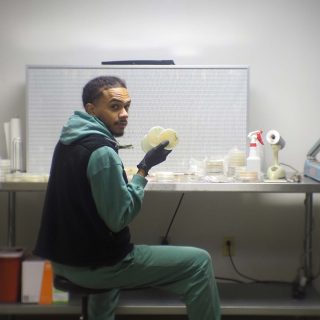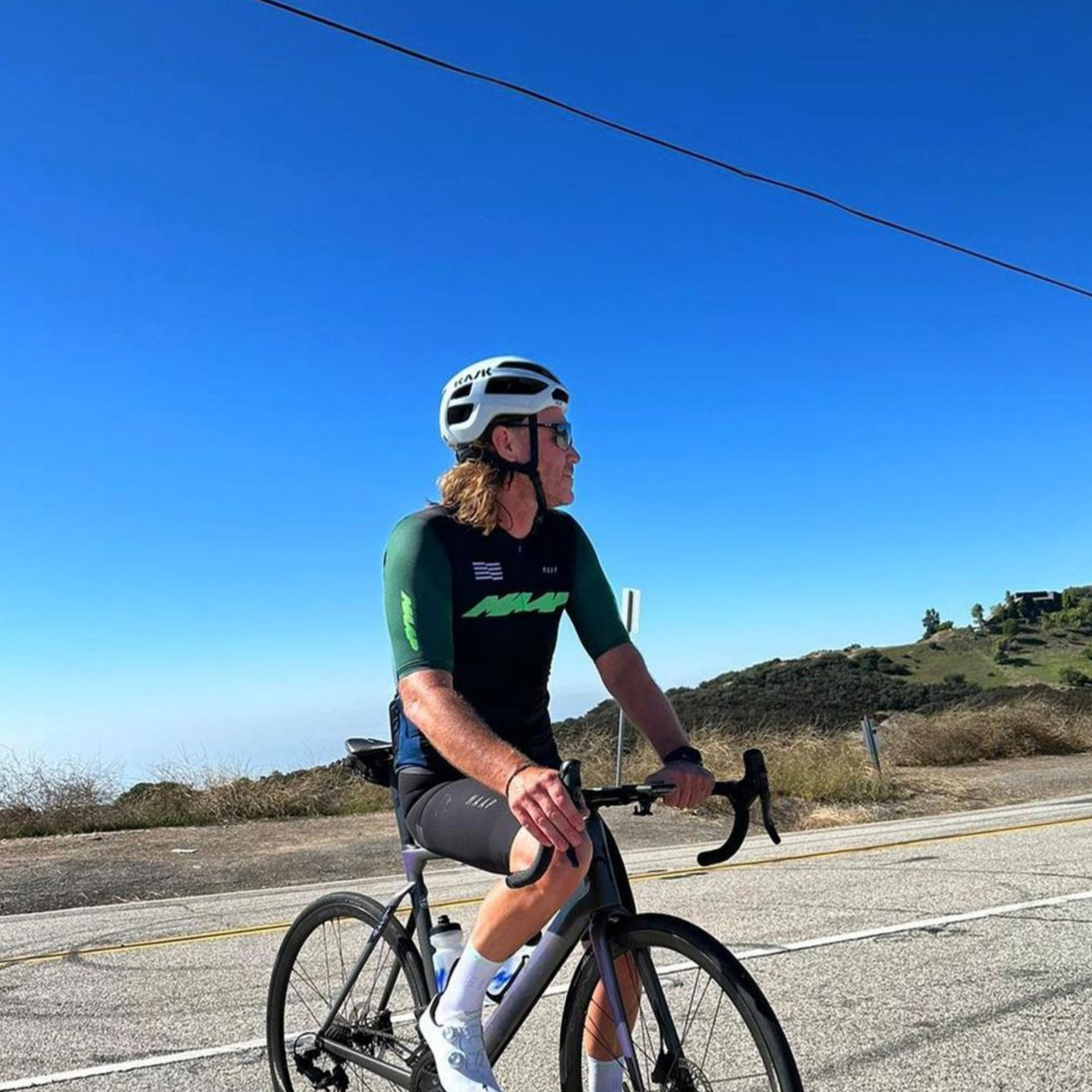An Interview with Matt Barr from the Looking Sideways Podcast
An interview about interviews with the man behind the action sports podcast
The rise of the humble podcast over the last fifteen years is well documented. With swankier listening devices and quicker internet connections, more people than ever before are choosing to soundtrack their life with pre-recorded conversations and pontifications made available via the world wide web.
Yep—podcasts are bigger than ever… but regardless of their popularity, it’s still pretty hard to find one that’s actually worth listening to.
Looking Sideways bucks that trend. Focussing mainly on surfing, snowboarding and skating, it features in-depth interviews with big names and lesser-known luminaries alike, breaking past the small-talk to uncover why and how these people do what they do.
We talked with Matt Barr—the man behind the mic—to find out more…
Starting at the beginning, how did Looking Sideways come about?
I started nearly four years ago now. My background is in journalism—that’s what I’ve been doing since I was 18, and I’m 44 now, so I’ve been doing it a while. I was a full-time journalist until 2005, and then I set up a marketing agency. I’ve always written about skateboarding, surfing and snowboarding, but that took a bit of a backseat as the agency started to kick off. I had the idea of the podcast because at the time, not many podcasts were covering those subjects, and the ones that there were, I didn’t think were that good.
I just thought, “I could have a go at that.” It wasn’t like there was a grand master plan—I just thought it was a decent idea. So I did three at the beginning, and people seemed to like them, so it just went from there. It was that classic thing to do on the side, and it still is really—I’ve just been lucky enough to find listeners and an audience, which has been nice.
Did you have a big hit-list of people you wanted to talk to, or was it just a case of getting stuck in?
I definitely had a big list of people, but from the beginning, I was more interested in trying to find decent stories. The interview podcasts that I like, they might have the big names, but thematically they tend to be led by what the presenter is interested in. Think of Adam Buxton—for every Louis Theroux, he’s got someone pretty random on there. There’s always a common thread in these podcasts in that they’re what the presenter finds interesting, and after a while, you start trusting that. I thought that was a good way of doing it—I’d just focus on who I thought was interesting, and if they happen to be well known, that’s great, but if not, who cares really?
And to be honest, all along I did just do it to please myself. I was quite careful not to start setting too much store by it. You know when you’re younger and you have creative projects and you start thinking, ‘I really hope this succeeds’?—I really didn’t want to do that, because that can take the enjoyment out of it a bit. I just wanted to do something I was proud of, and thought it was interesting.
Yeah, things can often burn out if you set your standards too high.
When you’re younger you do that thing—“I’m going to write a film script” or “we’re going to be in a band and get signed.” And it’s great to have ambitions, but often they can inhibit your creativity, because you just end up setting yourself up to fail. It’s never going to match what your ambitions are. It certainly took me a while to learn that, so when this came along, I just thought I’d try and remember that, and not get too stressed by it. I do the podcasts every week, but if it comes around that I’ve not got an episode that week, I try not to worry about it. It’s not some regimented thing. Ultimately, no-ones going to notice, apart from me.
That’s the beauty of it being on the internet too—you’re not working to some print deadline.
Exactly. And going back to when I originally had the idea, I did think of trying to find a snowboarding magazine or an action sports magazine so it could be ‘their podcast’—almost asking someone’s permission to do something. But then I thought that I might as well just do it myself and come up with something I’ve got control over. And that’s really helped me keep enjoying it too.
Subscribe to our newsletter
Matt with James Otter. Photo by Mat Arney.
If you’re already working full time, you don’t want to turn this into another job do you.
No. And going back to that idea of it just being what I find interesting, I think there’s some strength in that as well—as often you get these big names, and they can be quite dull and maybe don’t have anything interesting to say. Whereas if you find someone who isn’t massively high profile, but fundamentally has a more interesting story, the people who listen to the podcast definitely still respond. And the more it has gone on, the more people have understood what I’m trying to do.
Yeah, people will start to trust you on it. Going back to when you started the podcast, what was missing from the other podcasts about skating and snowboarding?
There just weren’t that many of them. There were a couple that were out there, but they were quite American.
I was going to mention that—they sound like wrestlers!
Yeah, they can be quite demonstrative. I do listen to some like that, and some people do that overly-American thing really well, but when it’s done badly, I don’t think it’s a great look. And at the time, the ones that were around just weren’t my cup of tea. These days, there’s loads of really good ones in the field, and that’s also been one of the good things about doing it—there’s a weird little community of action sports podcasters these days, and everyone’s really supportive.
It’s not like there’s beef between ‘em?
Haha—that’d be pretty niche beef. No—it’s all pretty friendly.
Why do you think podcasts have taken off so much?
I guess there’s a really low barrier to entry. You just need your phone and the internet, and that’s it. There’s a perception that it’s quite easy—and don’t get me wrong, it ain’t coal mining—but there’s probably more to it then people think. My view is that if you’ve got a bit of a creative hankering, it’s quite an accessible medium. It’s like the old long-tail internet thing. It doesn’t really matter how niche it is—and my podcast is pretty niche at the end of the day—but if you do something that people are into, you will find an audience out there. You can find a topic, have a go at it, get it on the internet and there you go.
If I had this idea 20 years ago, I’d have had to have gone down a very traditional route—trying to find a radio station—but you just don’t have to do that anymore. It’s essentially radio, but it’s way easier for people to find a platform on it. It’s perfect background time too. I’ve got to walk the dog two hours a day—so there you go. There’s time in most people’s lives where there’s a pretty perfect podcast size gap.
What do you think makes a good podcast?
Audio quality is massive. I was really careful about that with mine—as a listener of podcasts, if I was listening to one and the audio quality was bad, I’d always turn it off. Just getting your levels right is really important.
“If you do something that people are into, you will find an audience out there—you can find a topic, have a go at it, get it on the internet and there you go.”
I guess the ones that I like personally have a point of view. Like any media, you’re looking for a strong editorial voice. You’re looking for people who have a viewpoint, and can express it in the best way. Ultimately, if something is presented well, it’s a good story and there’s a confident voice behind it, it’s got a chance hasn’t it?
A lot of media is backed by brands now—it’s advertorial—so something that can have its own voice is quite refreshing.
Yeah, and that was a very conscious choice on my part. And a lot of that, to be honest, was to do with what I did when I was younger. I used to run a snowboarding magazine, and even back then—and I’m talking in the 90s—it was still essentially advertorial. And we just used to get in trouble all day long—we were in our twenties, and we didn’t give a shit about the ads that paid for the magazine. There were a few pretty harsh lessons back then in terms of the economics of media, and not forgetting who pays your wages.
And also, I run a marketing agency, so my day job is working with brands on that, so when it came to the podcast, there was a conscious decision. And I was lucky enough that because I could fit it around work, I didn’t need to take any money.
I can’t remember what I was going to ask now… I’ve lost my train of thought. I suppose if you’re recording for a podcast then blanking out like I am now isn’t ideal. Does that happen much?
Oh yeah, all the time. You’ve kind of got three things going on when you’re doing it. You’re trying to listen, you’re trying to react, and you’re also making like you’re not having a separate conversation with yourself in your head. You’re trying to have a conversation that appears natural, but at the same time, you’re massively analysing what the person is saying so you can think of interesting questions. And sometimes, yeah, it’s really easy to lose your train of thought.
Matt with Ross Edgeley. Photo by Owen Tozer.
What’s your way of doing it then? Do you have a list of questions, or do you freestyle it?
I used to do loads of prep, and I used to write a big list of questions, but now, I kind of trust myself a bit more. What I’ve realised from doing this is that there’s definitely a bit of muscle memory in there, so what I tend to do now is try and read or watch as much stuff as I can about the person I’m interviewing so I’ve got a good understanding of where they come from and what they do. And that tends to be enough for me to have good prompts when I’m talking to them. Something will usually pop into my head based on what I’ve learned about them. The last thing you want it to be is a job interview.
To bring it back to your question about what makes a good podcast, the best ones are where you can tell they’re having a great conversation—they’re both enjoying it, but equally, they’re covering a lot of ground as the host steers it subtly in a direction.
I’ve found that if I get rid of a list of questions, I can do that more easily, as I’m less worried about it. But to be honest, it took me ages to trust myself to do that. I’ve had a few where I’ve had zero prep. I did a trip around California last year with a friend of mine who is a photographer, and we did 16 in two weeks, and it was head-wrecking. And for quite a few of them I had to be quite up front about the fact that it was just going to be a conversation rather than a full in-depth roll call of their CV.
It wasn’t going to be This is Your Life.
Really confident interviewers have the right level of research, but are really happy to let the thing take its own course—so I’ve just tried to trust my ability to do that.
Have any of the interviews surprised you? When you research people, you can quite often imagine how an interview will pan out—but have any taken a turn you weren’t anticipating?
Yeah, there’s been a few like that. Probably the most popular one was with a skateboarder called Jamie Thomas. Within ten minutes he was talking about his mid-life crisis, and talking about a lot of things that I certainly wasn’t expecting him to talk about. That was definitely one of those, “I hope this tape recorder is working,” moments. He was really great—he totally went there, and he was completely in control of it. I think he’d planned it really.
Yeah, as if was wanting to get something off his chest, and there happened to be someone around who was interviewing him?
It felt a little like that. I was expecting it to be one of those ‘here’s my life in skateboarding’ stories, but the conversation ended up being about the fact he was an athlete who’s best years are behind him—which is an age-old trope for any professional sports person—the footballer who can’t get over the fact he can’t play at Old Trafford anymore.
The Uncle Rico scenario.
Yeah, exactly. And he just wanted to talk about that, and that’s not something that’s very commonly talked about in skateboarding. It was a fascinating conversation. And there’s been a few like that. It works best when people are prepared to be quite open. And I think most people I chat to these days are ready for that, which is good.
Matt with Jamie Thomas. Photo by Owen Tozer.
Yeah, it’s a co-operative thing, you want them to put the effort in too.
And it can also be a good challenge when people don’t know what the podcast is—how can I very quickly get people on board with it?
How do you do that? How do you get people to open up?
When most people are interviewed in the media, it lacks substance. I’m not necessarily saying that as a criticism, but if you’re quite famous and you’re doing a load of interviews, then you’re probably used to getting asked the same stuff everyday, so I think if you can show a bit of respect for the world that they come from, and treat them like grown-ups, that’s about it really.
Yeah, if you’re showing you’re bothered, and you’ve done your research, they’re probably going to have more respect.
It definitely helps if you let people know that you understand what they do, and that you take it seriously. It’s a blatant appeal to the ego… and we’ve all got one of them. I don’t want to make it sound too manipulative, as I’m not approaching this with some master plan of how to get into peoples’ heads, but it’s like any conversation—if you want it to go well, you have to bring something to it.
It sounds like you didn’t really have any expectations with the podcast. When did you realise that people were into it—that you were maybe on to something?
It was really early—the third one I did, which was with a friend of mine who’s a snowboarder. He’s not very well known, but he was caught in a crazy avalanche, and it’s a wild story. He’s a notorious figure amongst my group of friends—he’s a very good, very reckless snowboarder, who kept getting into these ridiculous situations. He got caught in this avalanche, and he was extremely lucky to survive. Normally you’ve got about 15 minutes in an avalanche before you’re dead, but he was under for an hour and a half, as he’d found an air pocket. It’s a crazy survival story, so when I started putting the list together of people I wanted to talk to, I knew I had to interview him.
“Really confident interviewers have the right level of research, but are really happy to let the thing take its own course—so I’ve just tried to trust my ability to do that.”
At the time he’d just really hurt himself as he’d fallen off another cliff, and when I put that out, it got loads of attention. I got loads of people contacting me about it straight away. I thought, “Okay, maybe this has got legs.”
And now you’ve done 138 of ‘em. Where next for you then? Just keep it going as it is?
I’m kind of happy with the way it’s going really. I’m just trying to stick with not creating too many silly artificial deadlines or goals for myself that I can’t live up to. I’m doing a book with my photographer friend, Owen Tozer, who came on the California trip with me. Off the back of that we got loads of material so we’re doing a book around that, and it’s looking really good actually—I’ve been lucky enough to get some great writers involved.
We’re not going to print that many, but if we can sell them, we might try and do some more books, which is cool. We’ve been working together for years, so we’ve got a lot of material.
Sounds good. We’ve talked for a while now—have you got any wise words to wind this up with?
Probably not, to be honest.
Haha, fair enough. I’ll change the question then… What have you learned from doing the podcast?
Well it’s just confirmed what I’ve always thought—ultimately no one gives a fuck what you do, so you might as well do your thing anyway.




